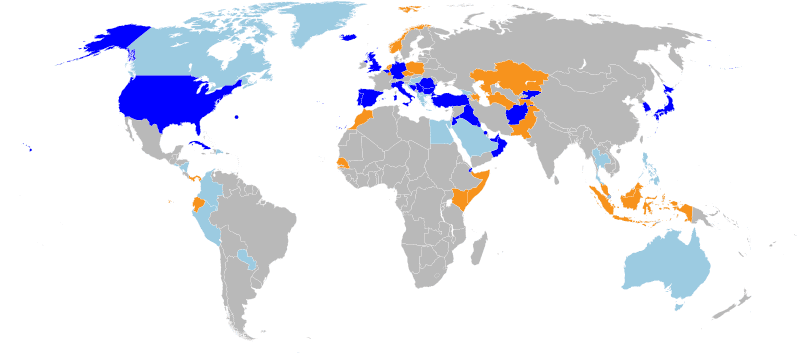‘World Order’ and the Myth of ‘Retreat’

The Wall Street Journal published an excerpt from Robert Kagan’s new book over the weekend. Kagan recites another tedious paean to the “liberal world order” and warns of its deterioration:
That order—with its mutually reinforcing security, economic and political components—has created a geographical and geopolitical space in which liberalism has taken root, spread and evolved. But it was always artificial and tenuous, challenged from within and without by natural forces—the always potent antiliberal aspects of human nature and the competitive and anarchic tendencies of geopolitics. Like a garden, it can last only so long as it is tended and protected. Today, the U.S. seems bent on relinquishing its duties in pushing back the jungle.
Praising “world order” and lamenting “retreat” have been constant features of America’s post-Cold War foreign policy debates. They are usually ideological declarations rather than descriptions of the real world. That certainly applies to Kagan’s essay. Advocates for a hyperactive U.S. role in the world have made a habit of taking credit for the genuine goods of the post-WWII era that they had no part in creating and conflating everything good about the post-1945 world with their own policy preferences since 1991. Much of the world has gradually become more liberal and democratic at the same time that the U.S. has been the predominant power, so they simplistically assert that the former depends on the continuation of the latter. They tell us that we have to accept a costly strategy of primacy forever or watch the world plunge into the abyss:
Our real choice is between maintaining the liberal world order, with all its moral and material costs, or letting it collapse and preparing for the catastrophes that are likely to follow.
This would probably be a lot more compelling if we had no memory of what the would-be “maintainers” of “world order” have been doing for the last quarter century. The most vocal advocates for what Kagan used to call “benevolent global hegemony” have made a point of trashing international order on numerous occasions, and all the while they have disingenuously presented their own attacks on that order as a defense of it. They present themselves as the champions of “order,” and yet they have spent their entire careers sowing chaos and destruction in different parts of the world. The “moral and material costs” that interventionists insist that the U.S. has to keep paying usually have little or nothing to do with preserving “world order” and everything to do with abusing U.S. power to pursue other ends. One of the biggest threats to international order are the hard-liners that want to wage endless war in its name.
The interventionists like Kagan that celebrate the “world order” most enthusiastically have made a habit of undermining and violating it more than most, and the “retreat” that they keep warning us about never seems to happen. The Kagan excerpt is entitled “the costs of American retreat,” but one will look in vain for any evidence of the retreat that has supposedly imposed so many costs. Kagan says that the U.S. “seems bent on relinquishing its duties,” so he should be able to provide several examples of the pell-mell retreat that he says we are witnessing, but somehow he never gets around to it. There is not one example of U.S. “retreat” mentioned in this essay. I submit that it because there is no evidence to support the thesis that America is “retreating” and whatever is going wrong in various parts of the world cannot be attributed to a withdrawal that has never occurred. Should the U.S. disentangle itself from many of its overseas commitments? I think it should, but that is also how I know for certain that none of it has happened.
Comments